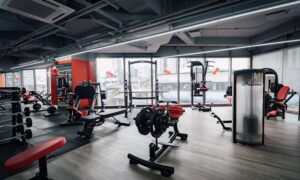During best of times, investing in a commercial property requires a lot of thought, planning, and well-planned out research. While looking for an ideal commercial property for business, different factors like the current condition of the job market, infrastructure available at the disposal, migration patterns, and future planned improvements all play an important role.
While the general guidelines for all commercial property loans is applicable, investigate the properties in prime areas more thoroughly. The factors that influence commercial property loans are-
Lesser Loan to Value (LTV) ratio
The percentage of funding in commercial property loans is 55%. This means that people who plan to own commercial properties should contribute more from their pockets.
Higher fee
The loan-processing fee for commercial purchases is 1% of the total loan value. Sometime, if the lenders like the borrowers, they might reduce the processing fee to 0.5%.
Higher ROI
The Rate of Interest (ROI) is a crucial factor when it comes to commercial properties. The rate of interest for commercial loans is 1-2% greater than the rate of interest offered for the residential loans. This percentage can go up if the documents and a surrogate are submitted.
Builder Category
If the property is still being built, the lenders closely look at the integrity of the builder’s profile. The time of the completion of the construction is very important. It is known fact that the commercial properties can be constructed in short time as compared to the residential properties. A lender will usually look at an older delivery schedule and take a call on lending the money.
Technical Evaluation
A commercial building has several specifications to maintain. These specifications range from lifts, shafts, emergency exists, double staircases, fire safety equipment, etc. An authorized team will review the technical specifications of the commercial property loan in details before taking a call on lending the money.
Obtaining all statutory approvals
There are several approvals to obtain by the builder before applying for a loan. These approval documents include clearance from various departments like forest, fire, and much more. There should not be any kind of risk related to demolition. These documents are a must for residential properties, too, but the norms for commercial properties are a little stricter.
Loan tenure
The loan for residential properties can go up to 30 years. For commercial loans, the tenure is for 10 years, which automatically results in higher EMI for the borrower.
Valuation
If the builder increases the cost of the property to avail more funding from the lender. The expert evaluation committee hired by the lender rejects the entire application. Every lender will have several valuation agents under their purview and keep the lender updated on all the latest news of the borrower.
Minimum area
A lender will usually look for a minimum square foot area to take a call before lending the money. Some retail outlets have small spaces called vanilla. In these small spaces, bank ATMs and other small kiosks might be placed. A lender, usually, does not lend any kind of money for areas that are lower than 100 sq.ft. Some lenders do not lend out loans if the area of the floor is less than 250 sq.ft. Since different policies apply for different lenders, it is better to check with the loan advisors before taking a call on selecting the lender.
Industry experts believe that increasing interest rates could reduce the demand for commercial property loans due to the increase in rent and cost of finance. Ideally, customers should borrow in an environment that has low interest rates.


































